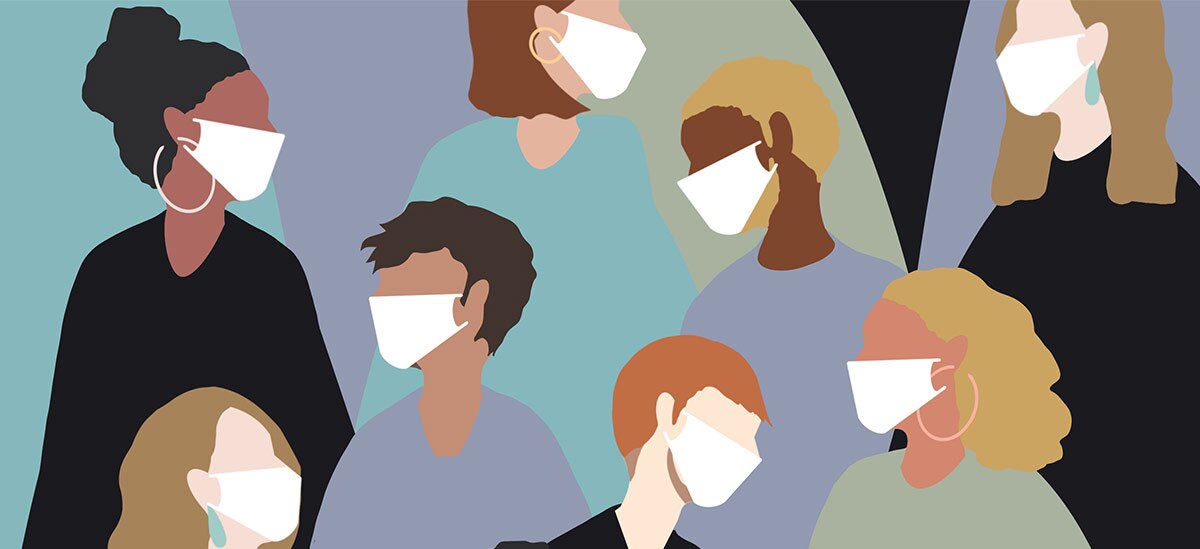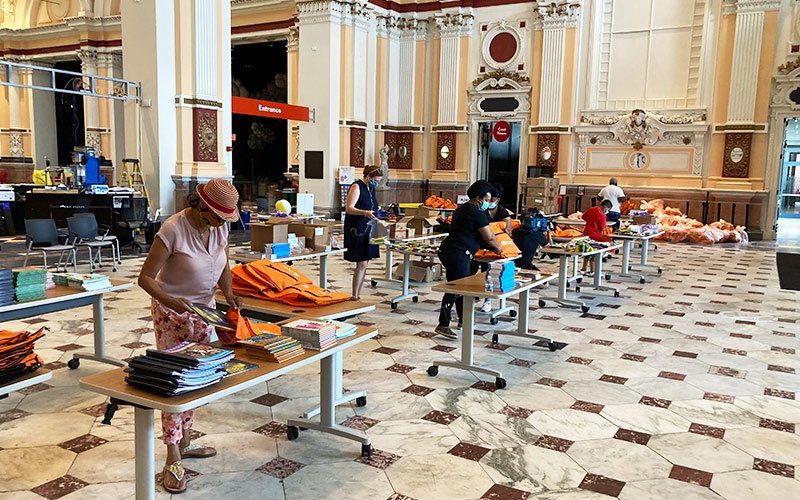
As the Coronavirus pandemic unfolded in unparalleled and often unpredictable fashion during the spring and summer of 2020, it became clear that the impact would be deep and enduring. As part of PNC’s steadfast and resolute commitment to strengthening the communities we serve, we felt a responsibility to respond. In April, we announced $30 million in charitable support of coronavirus relief efforts across the markets we serve. The funding is being disbursed in 2020.
As a Main Street bank, we understand that each of our communities is unique. That understanding plays a fundamental role in not only our business model but our philanthropic philosophy as well. Through the leadership of our regional presidents and Community Development Banking teams, PNC is able to identify grant opportunities that provide the greatest local impact in the areas of food insecurity and shelter, early education and online resources that enhance access to information, and programs and tools for those in need.
“We’ve always held the position that someone in Pittsburgh can’t tell someone in Chicago how to best distribute philanthropic dollars,” said Sally McCrady, director of Community Affairs and president of the PNC Foundation. “Our employees know their communities and the needs of their communities. They know the organizations making a great impact. So a local approach not only fits with who we are as a Main Street bank, but we feel it’s the most impactful way to apply our philanthropy.”
Impact in action
Frontline healthcare workers in Detroit who are receiving meals and short-term lodging to avoid possible virus transfer to their families through a grant awarded to Henry Ford Health System. In Wisconsin, PNC provided funding for meals where the United Way of Greater Milwaukee and Waukesha County converted a vacant seminary to a shelter for the homeless population.
Support for artists and performers in North Carolina impacted by the cancellation of events through the NC Artist Relief Fund. We’ve long believed that engagement in the arts enriches lives and builds stronger, more vibrant communities. When the opportunity presented itself to help artists through this trying time, PNC leadership in Raleigh was eager to step in.
The doubling of capacity of the Louisville Free Public Library’s summer reading program through which thousands of children in low-to moderate-income families in Louisville receive age-appropriate books.

More than 250,000 nutritious meals that are being provided to school-aged children and their families in Pittsburgh through the Students and Families Food Relief Fund – a collaborative effort between the United Way of Southwestern Pennsylvania, Eat’n Park Hospitality Group and PNC.
“At PNC, we believe that we are stronger together. Our regional presidents have been living and breathing that philosophy day in and day out, particularly during this pandemic as we rally to support those in our communities facing significant challenges,” said Lou Cestello, head of the Office of Regional Presidents.
Expanding our commitments
The challenges presented by the pandemic have been compounded by the emergence of one of the most critical civil rights movements of our time, as our nation continues to struggle to combat racism and discrimination. PNC is committed to doing its part, including through the company’s recently announced $1 billion commitment to help end systemic racism and support the economic empowerment of African Americans and low-to moderate-income communities.
“Each of us has a role to play in combatting racism and discrimination, and PNC is committed to driving real change in areas in which we can make the greatest impact,” said PNC Chief Corporate Responsibility Officer Richard Bynum.
The majority of this commitment will come to life through our community development banking team, which works to boost the quality of life in low- and moderate-income neighborhoods through financial education, consumer programs, and community development lending and investing. PNC’s significant accomplishments in this space have earned the company an “Outstanding” rating under the Community Reinvestment Act every rating period since those examinations began more than 40 years ago. While our commitment to low- and moderate-income communities is not new, we are now approaching this work with a more deliberate focus on the African American community.
While PNC anticipates making some targeted contributions in 2020, including $200,000 awarded to the Lawyers' Committee for Civil Rights Under Law in support of the organization's work to ensure voting access for all communities, particularly African Americans and other voters of color, we plan to have our philanthropic response unfold more fully in 2021.
“We are living in extraordinary times,” Bynum said. “We feel very strongly that being able to address the needs of our communities is critical and we stand ready to do what we can, where we can, to make the biggest impact.”




